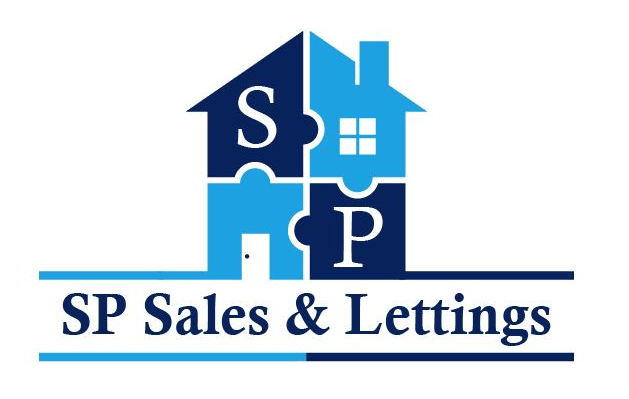
Feeling overwhelmed and exhausted with all that is involved in house moving? Many people can relate! There are so many hidden costs and decisions which need to be made in the process, from deciding on a layout for your new home to understanding conveyancing fees. One common question – particularly when it comes to those fees – is whether or not they’re negotiable. So, buckle up as we take a deep dive into this topic and explain everything you need to know about making sure you get the best deal for your conveyancing fees.
Conveyancing is a specialist legal subject which involves the necessary procedures required to transfer ownership of a property from one person to another. Conveyancing requires a conveyancer, or conveyancing solicitor, to handle the process ensuring that everything runs smoothly. This can include researching information about the property and surrounding area, negotiating terms, overseeing the exchange of contracts and finally registering the deed for completion. Quick conveyancing tends to refer to an efficient conveyance process where both parties move forward quickly with minimal delay in order for all parties involved to benefit. It can be beneficial for people who need to secure a quick sale or purchase but at the same time it’s important that you have an experienced conveyancer who knows all aspects of conveyance law to look after your best interests and protect you during this crucial process.
What Are Conveyancing Fees?
When it comes to conveyancing, there are numerous costs associated from start to finish. This is the process of transferring legal ownership of a property transfer from seller to buyer, or essentially the buying and selling of real estate. Generally speaking, the conveyancing process includes fees such as search fees, a conveyancer’s fee, expenses related to stamp duty, registration fees and much more.
Each cost depends on factors such as the location and size of the property, as well as if extra paperwork is involved within the conveyancing process and the complexity of the legal transfer, depending on individual and property circumstances. It can be both a time consuming and tedious task but with experienced conveyancers and solicitors specialising in quick conveyancing services you can have your dream home in no time – without putting a dent into your wallet.
Navigating the world of conveyancing can be a daunting task and finding the right law firm who you trust could make all the difference. While conveyancing fees may not be negotiable, you should always ensure that you are getting the best service for your money; there’s no substitute for experience! A good lawyer will keep you updated throughout the process and advise on any risks – it’s worth investing in someone who remains professional throughout. Don’t forget to shop around – ask questions and compare services between different firms to ensure you’re making a great decision for your needs.
When you’re on the hunt for a new home, your first thought might naturally be price. However, it’s important to remember that there’s more than just cost involved here. You should think about other factors like service and how quickly you can actually move in. If a lower-priced option provides poorer service and makes it so that you have to wait a long time before settling into your new home, you’ll find yourself paying an unexpected cost in frustration. In this case, spending just a bit extra can pay dividends in the form of better service and faster access to your new home. Price alone shouldn’t be the final deciding factor – consider all these elements together before signing anything!
Are Conveyancing Fees Paid Up front?
Conveyancing can be a tricky process and understanding the conveyancing fees and when they are paid is essential. Generally, there will be disbursement payments to make up front for things like ID Checks, Searches and downloading of the title documents from the Land Registry. At the same time, an initial deposit is required by your conveyancing Solicitor to cover any costs throughout the transaction leading up to completion. Finally, remaining monies must be paid when conveyancing process has completed. For a quick conveyancing process, it’s best that you understand when these fees are due to ensure everything goes smoothly.
Moving house is a long process, so it’s important to be well informed about all the conveyancing costs and payment plans. Your conveyancer will provide you with a detailed breakdown of all the fees and charges that apply before they start any legal work. They will also provide you will details of what payments are required to be made throughout the legal process.
Often when receiving your initial quote the additional fees and items may not be itemised to make sure you check with your conveyancer what the total cost will be, including known additional fees and disbursements and, of course, VAT.
By having full visibility of conveyancing costs from the outset, you’ll save yourself time and money in the long run. Making sure you’re aware of all of these essential details can help fast-track your conveyancing journey – allowing you to make quick decisions on requested actions and move into your new home quickly.
Can Conveyancing Fees Be Added To Mortgage?
When it comes to finding the best mortgage deal for you, it’s important to remember that you might be able to find a contribution towards your conveyancing fees as part of the package. Some lenders offer this, but may require that you use one of their panel firms for the conveyancing work. It’s also worth talking to your mortgage adviser to see if there are any cashback deals available on the legal work. Ultimately, it comes down to what matters most to you – whether it’s price, contribution or service.
Conveyancing who pays for what?
Conveyancing fees can cause quite a bit of confusion, so it’s important to know who pays them. The answer is actual quite simple: both parties involved in the property transaction pay them. This includes both buyers and sellers, who must each allocate funds for the professional legal advice they’ll receive while purchasing or selling a property. All potential homeowners should be aware of these costs and factor it into their budget when considering any mortgage payments or deposits.
Conveyancing can be a complicated process, but understanding who pays for what can help make it easier. Generally speaking, both the seller and buyer are responsible for paying their separate conveyance fees, ID checks and disbursements. If you’re the one purchasing property then you’ll also have to fork out for searches, registration of the property with the land registry as well as stamp duty based on your personal situation and the price of the house.
With all that in mind, understanding who is responsible for paying what upfront is an important step in making sure your conveyance process goes smoothly.
What items will I need to pay for?
This is not an exhaustive list but it will give an idea of the items you may need to pay for:
- Conveyancing legal fees – these can range from £600 to £1500 depending on the value of the property and the quality of the law firm
- ID Checks – each person who is buying or selling the property will need an enhanced AML (anti money laundering) check and these range from £5 – £40 depending on the service provided
- Searches – the buyer generally pays for the searches and can range from £200 – £400 depending on the searches provided. Most law firms will require a fully comprehensive search check so that they can protect your invest from every eventuality.
- Proof of Funds – the buyer needs to provide a Proof of Funds check to allow the solicitor to complete their regulatory obligations. These range from £7-£20 per check.
- Bank Transfer Fee – the large amounts of monies which need to be moved on the day of completion often require a CHAPS transfer to ensure the house sell and purchase monies are all moved within the same day. The cost of this transfer range from £25-£50 and is the cost the solicitor has to pay to the bank and can include administration costs too.
- Archive Fee – the solicitor is required by law to store all documents pertaining to your transaction for 15 years after the transaction is completed. This storage often comes with a fee.
- Official Copies – this is the cost when selling a property which is a payment to the land registry to download the official title details to prove ownership of the property and to look at any covenants in place on the property. The cost of the download ranges from £3-£7 per title, but will often be more on the bill due to administration costs involved.
- Land Registry Search (to lock the property in your name until it is formally registered) – £3.00 per search
- Bankruptcy Search (this is to check on behalf of your lender if you have been bankrupt – not applicable for cash purchases) – £2.00 per person
- SDLT paperwork – around £75.00 for submitting it to HMRC on your behalf plus the administrative cost of completing the paperwork.
- Land Registry Fee – this changes depending on the value of the property and the type of application though normally varies from £45.00 to £1,105. A full list of the fees is shown here: https://www.gov.uk/guidance/hm-land-registry-registration-services-fees
See more details of fees at this link: Online Conveyancing Fees – The Agent Site
So, there you have it, a quick guide to everything you need to know about conveyancing fees. Now that you know all the ins and outs of how much conveyancing costs, hopefully you feel more prepared to start searching for your dream home. If you’re ready to get started but still have some questions, our team at The Agent Site are here to help. We offer a range of services to make sure you’re legally ready in no time – and we can even do it all remotely so you don’t have to leave the comfort of your own home. Give us a call on 0161 710 1225 or drop us an email at customercare@theagentsite.co.uk and we’ll be happy to chat through everything with you.







